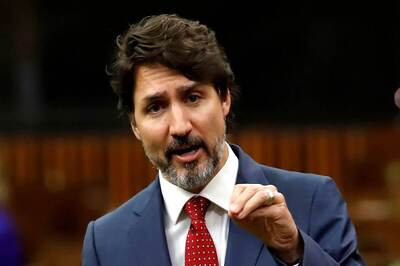
views
The Supreme Court on Friday stayed the Uttarakhand High Court judgement revoking President's rule till April 27.
On Thursday, the Uttarakhand High Court had revoked President's rule in the state.
While staying the High Court order, the Supreme Court observed that the judgement by the HC will not come into effect till April 27. The High Court has also been directed to serve a copy of the judgement to the interested parties by April 26.
The SC gave the order after Attorney General Mukul Rohatgi argued on behalf of the Central government that the judgement of the HC could not come into effect without it being signed by the judges.
Before passing a brief order, a bench comprising Justices Dipak Misra and Shiva Kirti Singh recorded an undertaking given by Attorney General Mukul Rohatgi that the "Union of India shall not revoke the Presidential proclamation till the next date of hearing".
The apex court clarified that it was keeping in abeyance the judgement of the High Court till the next date of hearing on April 27 as a measure of balance for both the parties as the copy of the verdict was not made available to the parties.
During the hearing, the bench also observed that as a matter of propriety the High Court should have signed the verdict so that it would be appropriate for it to go into the appeal.
The apex court issued notice to Harish Rawat and Chief Seceretary of the state on the petition by Centre challenging the quashing of Presidential proclamation under Article 356 of the Constitution in the state.
Rawat has also filed a caveat before the SC seeking that he be heard before any order is passed on the issue.
In Thursday's ruling, the High Court said the proclamation dated March 27 imposing Article 356 stood quashed. The HC also observed the Bharatiya Janata Party (BJP) had a direct interest in the imposition of President's rule in the state and so its letter to President Pranab Mukherjee saying "there is a breakdown of constitutional machinery in the state is of no relevance at all and is not material to the imposition".
(With PTI Inputs)




















Comments
0 comment